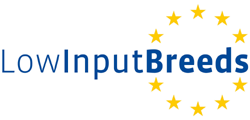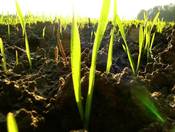Contact
Eduardo Cuoco
Technology Platform Organics (TP Organics)
c/o IFOAM EU Group
Rue du Commerce 124
1000 Brussels
Belgium
Tel. +32 2 280 68 44
Fax +32 2 735 73 81 ![]() eduardo.cuoco@no-spam.ifoam-eu.org
eduardo.cuoco@no-spam.ifoam-eu.org
www.tporganics.eu ![]()
Save the date: Science Day, 15 February 2013
The Science Day is held at the Nürnberg Messe, with speakers, workshops and the official launch of a new technology and innovation platform.
More information is available here.
Event
February 14, 2013: Preparing the organic and agro-ecological sector for the new EU research and innovation policy at the BioFach Congress
14.02.2013
Location: BioFach Congress, NürnbergMesse, Nürnberg
The session "Preparing the organic and agro-ecological sector for the new EU research and innovation policy"is organiszed by the the European Union Group of the International Federation of Organic Agriculture Movements (IFOAM) and the Technology Platform TP Organics.
Venue
BioFach 2013 - Nuremberg
Room Dublin (NCC West)
Time
Thursday 14 February - 15.00-17.00
Agenda
- 15.00-15.10
Marco Schlüter (IFOAM EU)
Welcome - 15.10-16.20
Session I: Setting the scene
Moderation: Eduardo Cuoco (TP Organics) - 15.10-15.35
Hans-Jörg Lutzeyer (DG Research & Innovation)
The new EU research and innovation policy framework: Horizon 2020 and European Innovation Partnership 'Agricultural Productivity and Sustainability' (EIP) - 15.35-15.50
Bram Moeskops (TP Organics)
Towards an 'Action plan for innovation and learning in agro ecological food and farming systems' - 15.50-16.00
Marco Schlüter (IFOAM EU)
Strategic pillars of the organic sector towards the new policy framework - 16.00-16.20
Discussion among participants - 16.20 – 16.50
Session II: Discuss strategies
Moderation: Susanne Padel (Organic Research Centre)
Topics to be discussed:
- Producer-led research is central to agro-ecology. One consequence of this is that practitioners too should receive fair recompense for their research efforts. How can this be organised? What can be learnt from previous experiences with remuneration schemes? What other ways do exist to engage practitioners in research projects.
- One goal of the EIP is to facilitate exchange of information and knowledge between Member States and regions. The diversity of agro-ecological knowledge makes its diffusion extra challenging. How should the dissemination of agro-ecological knowledge be organised at EU-level? What can be improved at Member State level?
- How will the EIP be implemented in your Member State or region? How much is the organic sector involved? Is the organic sector in your Member State ready for the EIP? How can the organic sector become a key EIP stakeholder in all Member States?
16.50-17.00
Bram Moeskops (TP Organics)
Round-up
More information
- Online registration: https://docs.google.com/spreadsheet/viewform?formkey=dDZsVEZVbWljSHFGbmZScWtrc1pyS1E6MQ

- www.ifoam-eu.org

- www.tporganics.eu

 This website was archived on December 19, 2017 and is no longer updated.
This website was archived on December 19, 2017 and is no longer updated.



